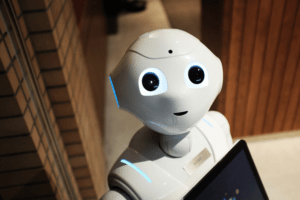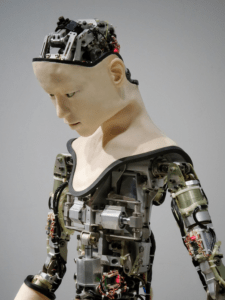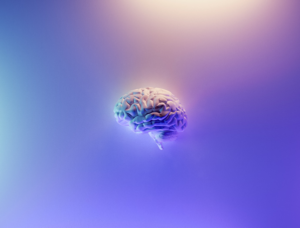
We have all heard of Artificial Intelligence, by far it has been the most astounding invention by mankind. Artificial intelligence is a simulation of human intelligence via machines. Imagine a machine able to work as well as a human brain, the possibilities to evolve would be endless. In this article, you will get to know all about the types of AI.
Why do we need Artificial intelligence?
One may wonder, with such a big population in the world, why would one need a machine that acts and works like a human? But in today’s world, the data generated is tremendous, it is practically impossible for a human to absorb, understand and evaluate the best decision out of the available data. AI enhances the speed, effectiveness, and precision of human efforts. AI is the future of complex decision-making.
Where is AI used currently?

AI is still under development and has a long way to go. As of now, the most used AI examples are- Alexa, Siri, or Google assistant. Many of you must have also seen automated chatbots that solve customer queries. AI is also used in several fields as of now, which include- healthcare, inventory management, security, sports analytics, and many others.
AI research focuses on the below five fields :

- Knowledge
AI systems must possess vast knowledge, it must understand several entities that exist in the world. They should be able to categorize and correlate with each other.
These AI System is currently involved in sectors like- Medical diagnosis, Drug manufacture, financial trading, consumer targeting, etc.
- Reasoning
AI systems should possess logical reasoning too. The system should apply logic, relate ideas, and derive meaningful conclusions. Different types of reasoning like inductive, abductive and deductive should be possible. Reasoning AI systems can be useful for legal analysis, asset management, compliance, Games, etc.
- Planning
Prediction and specifying a certain set of outcomes will also help us in many fields, AI Research also focuses on planning. These systems will help define the set of actions required to achieve a certain outcome. Systems with such skills are helpful in logistics, demand forecasting, Fleet management.
- Communication
AI systems should be able to understand written and spoken language. These AI systems help in customer support, voice control, client service.
- Perception
We have five senses, AI systems should also have the ability to interpret sensory inputs like images, sounds, etc. these systems help a lot in health care for imaging, authentication, augmented reality, and surveillance.
Types of AI on basis of Ability
AI can be classified into 3 types based on ability
- Artificial Narrow Intelligence (ANI)

Almost all the AI bases systems that are available as of now, falls under this category. ANI (Artificial Narrow Intelligence) involves machines that can only perform a predefined set of tasks. Hence it is very limited. Examples include- Siri, Alexa, self-driving cars, Sophia the humanoid.
- Artificial General Intelligence (AGI)

Humans are considered intelligent considering their ability to perceive, learn and decide on complex things, we can also correlate various things and come with a meaningful outcome. Artificial General Intelligence (AGI) works as well as humans, these systems will be able to independently correlate and form multiple competencies across various domains. Many scientists debate on the threat of AGI superseding human intelligence.
- Artificial Superintelligence (ASI)

As the name suggests this type of AI system will be way beyond human intelligence. They will be able to comprehend a large amount of data, be fast in making decisions and processing data. Although it may take many years to develop such systems, whenever they exist, they will redefine the way we humans live now.
Types of AI
Now that we saw AI categorized based on technology and ability, let us look at the AI systems four types also
- Reactive Machines

These AI systems, do not have memory or experience, they act on what they see. As they do not have any past database, they are simply reacting with the things they know.
If we take an example of Deep blue, which is an IBM’s chess-playing supercomputer, it was only fed with the chess rules and was playing against the chess grandmaster, Garry Kasparov, this experiment was done in the year 1997. The reactive machine, deep blue, was able to beat the grandmaster with ease.
- Limited Memory

Artificial Narrow Intelligence and limited memory systems are the same, all AI applications that we see today like- chatbots, virtual assistants or self-driving vehicles are Limited memory systems. Limited memory is reactive machines but with the capability to grasp historical data too. For easier explanation take into consideration- Limited memory AI system in healthcare, the image recognition and diagnosis for any scans or radio images could be possible because it is fed with thousands of images in its training.
- Theory of mind

This kind of AI system is still a work in progress, these systems focus on human psychology, beliefs, perspectives, and emotions. Artificial emotional intelligence will play a major role to devise such systems. These systems when invented will be able to showcase human behavior. They will be able to show empathy, understand the emotions of other person and modify their reactions accordingly.
- Self-Aware

The development of such systems may take centuries, these AI systems will be self-aware, which means they will know themselves and have desires of their own, which practically means that they are humans. These systems are unrealistic at the moment, but many scientists believe that when they are developed, they will have catastrophic to humankind. There is a high chance they may want to rule on humans. There is also a chance that they can work hand in hand with humans.
AI as of now has done remarkable changes in our lives. Although it has a long way to go to develop even smarter AI systems, The Concepts of Deep learning, big data, data science, IoT are emerging rapidly, they are bound to give us helpful results. The future of AI is going to be exciting and inspiring to all of us.